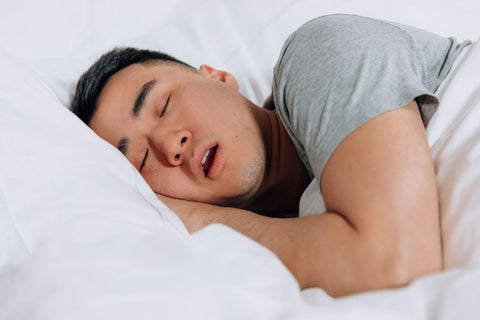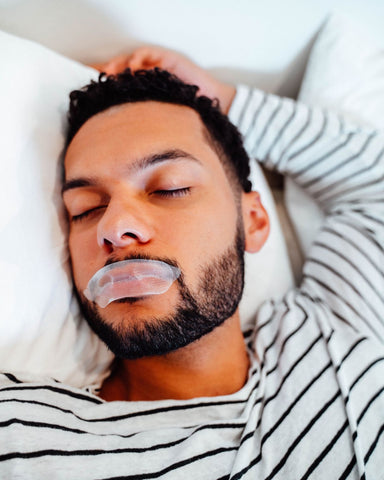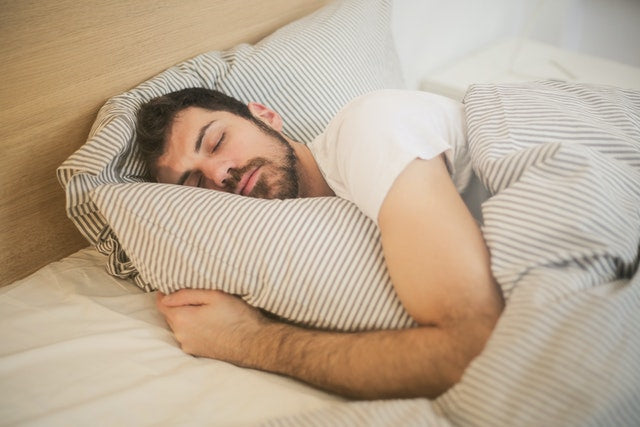Establishing and maintaining a healthy sleep routine proves difficult for most people.
The majority of adults need between seven and nine hours of sleep each night. However, 62 percent of people say they face trouble maintaining their sleep schedule, while 35 percent of US adults say they regularly get less than seven hours of sleep.
Moreover, 40 percent of people unintentionally fall asleep during the day regardless of how much sleep they got the night before.
If you find yourself waking up tired even after eight hours of sleep, sleep inertia may be to blame.
Sleep Inertia 101
Sleep inertia is a term used to describe feelings of confusion, disorientation, grogginess, and extreme tiredness immediately after waking.
This feeling usually lasts for 15 minutes to an hour, but some people feel the effects of sleep inertia for several hours upon waking up.
The exact biological cause for sleep inertia is currently unknown, but we have a few theories to explain this phenomenon.

Scientists believe that sleep inertia is triggered as a protective mechanism that helps us stay asleep throughout the night rather than waking up at every little disturbance.
Regardless of the cause, sleep inertia can easily become dangerous. In people with unpredictable work schedules, it impacts worker safety and well-being.
Hazards of Sleep Inertia
Sleep inertia impacts cognitive ability, focus, and even our visual concentration.
For these reasons, it can quickly become dangerous. Moreover, it manifests as intense sleepiness, brain fog, delayed reaction times, and an undeniable urge to go back to sleep.

Within the first hour of waking, our decision-making skills drop by over 50 percent.
Therefore, work-related tasks or risky tasks like early morning driving can quickly turn hazardous due to sleep inertia.
@somnifix Do you feel #groggy every morning? #sleepinertia may be to blame — & it can be dangerous! 😵💫🌀 #likeforpart2 #healthtok #learnontiktok ♬ Sensual Seduction - Snoop Dogg
Furthermore, sleep inertia can turn into something called “sleep drunkenness” if it lasts for multiple hours – and it can cause injury to the person experiencing it and those around them.
Sleep drunkenness is sometimes called confusional arousal and is a type of parasomnia. Parasomnia is a sleep disorder that involves undesirable experiences, such as abnormal movements or speech.
Sleep drunkenness is caused by the sleep inertia that occurs as your brain tries to move from sleep to wakefulness.
During this phase, the brain isn’t fully active, but the body is up and moving. Those experiencing sleep drunkenness may appear to be under the influence, hence the name.
At its least severe, sleep inertia is a brief morning inconvenience. At its worst, sleep inertia can cause harm to yourself and others.
If sleep inertia is so dangerous, what causes it? As mentioned, we don’t know the exact biological reason for sleep inertia.
That said, we have a few theories about what worsens it, starting with high sleep debt.
Potential Cause #1: High Sleep Debt
Sleep debt refers to the amount of sleep you're short on within the last few weeks.
If you’re still waking up tired after eight hours of sleep, this might be why. Picture this: you only get five hours of sleep from Monday through Friday.
You might think you have the weekend to catch up, so you get eight hours of sleep on both Saturday and Sunday.

However, your weekly sleep debt was between 10 and 20 hours, meaning that getting a bit more rest over the weekend won’t make much of a difference.
High sleep debt intensifies feelings of grogginess and sleep inertia, making it harder and harder to feel awake each morning.
That’s why it’s vital to get enough sleep each night to guard yourself against building up a high sleep debt.
What’s more, a predictable, sustainable sleep routine over a long period of time is the only way to pay off sleep debt.
Your natural sleep routine is connected to your sleep chronotype, which also affects feelings of grogginess in the morning.
Potential Cause #2: Your Chronotype
Chronobiology is centered around the study of biological rhythms, which includes our circadian rhythm, or sleep-wake cycle.
Circadian rhythm relates to our natural sleep patterns and is affected by the release of melatonin. More or less, we can change our circadian rhythm to fit our routine.
However, our sleep chronotype is pre-determined by our genetics. Chronotype determines who rises early, feeling most productive in the morning, and who rises late, doing their best work at night.
Sleep chronotypes include:
- The Lion: an early riser who prefers an early bedtime
- The Bear: prefers to wake up with the sunrise and experiences a dip in energy in the afternoon
- The Wolf: a night owl who is most productive in the evening and struggles to wake up early
- The Dolphin: a light sleeper with erratic sleep patterns who struggles to fall asleep

If you’re still waking up tired after eight hours of sleep, your sleep chronotype may be to blame.
Those with late chronotypes like the wolf or dolphin may experience more sleep inertia than early risers like the lion or bear.
As a later riser, give yourself ample time to wake and recharge before you have to be somewhere; “get up and go” might not be as achievable for you.
Aside from sleep chronotype, our brain chemicals may be the cause of sleep inertia.
Potential Cause #3: High Adenosine
When we start to feel sleepy, high levels of adenosine are the main reason.
This molecular compound exists in the brain and our cells. Adenosine promotes sleep and causes feelings of drowsiness that help us sleep.

During the day, it builds and builds gradually until bedtime, when it falls.
However, high levels of adenosine upon waking can cause sleep inertia, since adenosine tells our body to stay groggy when we’re already awake.
Adenosine builds up the longer you’re awake, so a regular sleep schedule can help level it out.
Solving Sleep Inertia
According to a recent study, light exposure at sunrise may help you feel more awake in the morning.
Upon waking, step outside for some sunlight to boost your circadian rhythm and regulate your sleep-wake cycle.

If you reached for a cup of coffee upon waking as you bask in the sunlight, be careful to watch your consumption for the rest of the day.
That afternoon cup of joe won’t do you any favors: consuming caffeine late in the day can disrupt your sleep schedule.
Moreover, napping is a great tool to help you avoid sleep inertia. That said, napping late in the day may worsen sleep inertia and ruin your sleep pattern.
A 2017 analysis found that the timing of your nap matters. A 10 to 20-minute afternoon nap is best for counteracting sleepiness.
If you’re mouth breathing during sleep, that worsens morning grogginess, too. To prevent mouth breathing, you must nasal breathe instead.

This is a learned practice – and even if you master it during the daytime, your mouth may still fall open while you’re asleep.
When this happens, airway tissues to fall backward and vibrate together, causing snoring and disrupting sleep. Mouth tape puts a stop to this for good, helping you sleep deeply and comfortably.
SomniFix For Sleep Inertia
If you’re still waking up tired after eight hours of sleep, the quality and duration of your sleep desperately needs improvement.
While there are multiple things you can do to improve the grogginess you feel upon waking due to sleep inertia, mouth taping requires the least amount of planning or thought.
Mouth tape prevents fragmented sleep and snoring by promoting nasal breathing throughout the night.

Simply pop SomniFix over your lips and drift off to sleep. Our Mouth Strips provide a comfortable fit that physically seals the mouth closed, preventing snoring and disrupted sleep.
You’ll nasal breathe throughout the night – the desired breathing pattern for better health.
Furthermore, our Strips are free from harmful irritants known to cause rashes, making them a solid choice for all skin types.
Breathe yourself away from sleep inertia at night with the addition of SomniFix to your evening routine!



